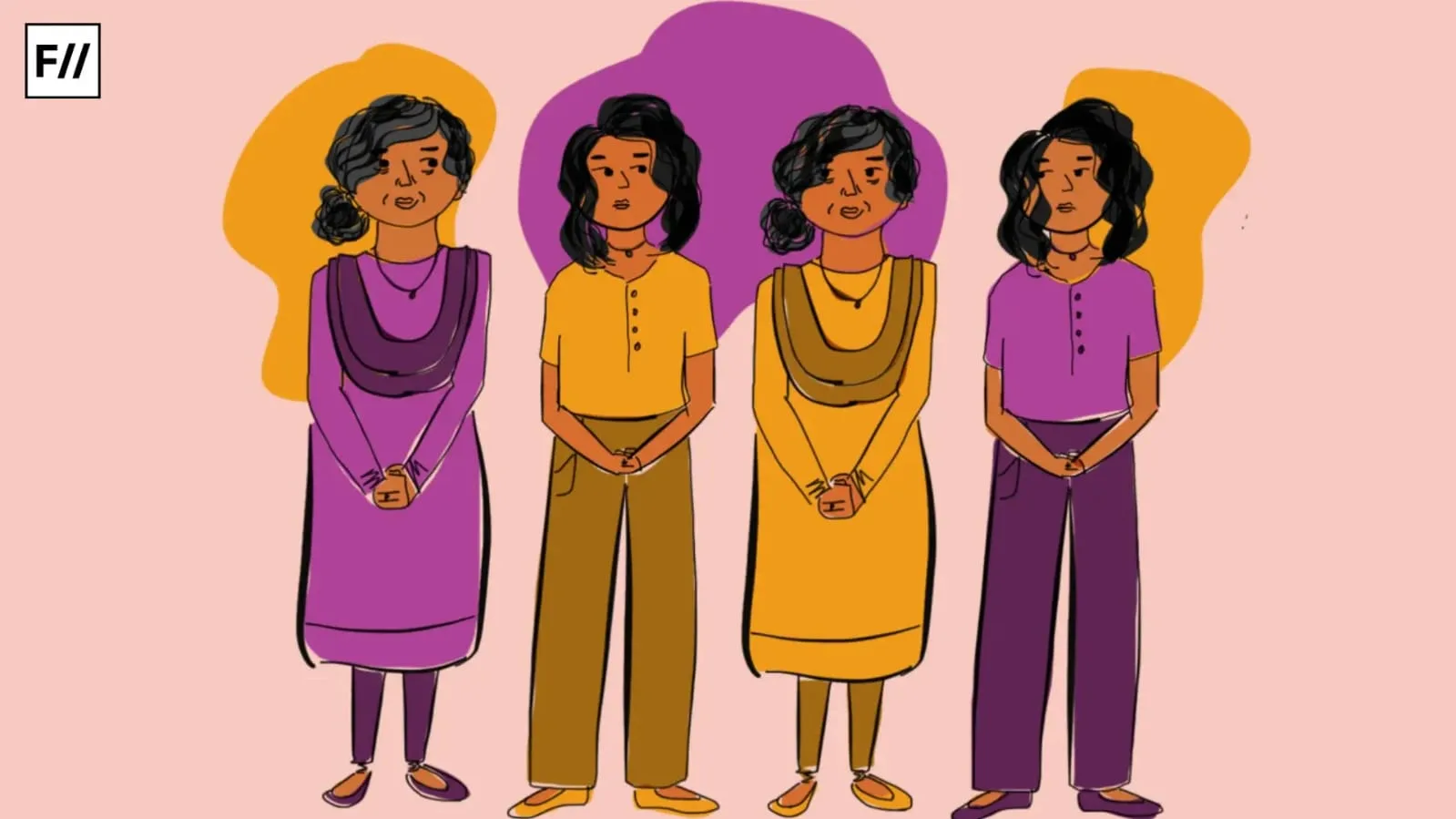Posted by Sriya Sridhar
I think that mental illness is like being on a deserted island and throwing a message in a bottle into the sea. You want to be heard, you want to be understood and you want a message to come back to you so that you will be rescued.
But perhaps the current is too strong or not strong enough? Maybe there is a sudden storm. And in this suddenness, your bottle is lost at sea. Do you give up, or do you try again? Do you stay on your island just comfortable with the unpleasant familiarity, or do you reach out once more beyond all odds?
It’s a difficult decision. Mental illness, especially anxiety, leads you to question your belief in the bottle reaching anyone. You know that in all probability it’s not going to get to the shore any time soon and no one can send help right away. At the same time, you hold out hope that maybe, just maybe someone will reply and you won’t be so alone.
Finding the balance between these feelings, between the personal and the objective, is at the heart of my writing about mental illness. It’s the most intimate thing one can go through – displaying the weaknesses and intricacies of one’s own mind. But I’ve also needed to keep in mind that others go through the same, and so there must be a common thread.
That is why writing this piece has taken so long. Over a year of making notes and scribbles on pieces of paper, of reading other people’s experiences. Over a year of fearing that I could never be understood if this was put out into the open. That is why the recycle bin of my computer is filled with half-finished drafts of pieces that were abandoned because I couldn’t get the words right. Because I found that quite often, practice doesn’t make perfect. Practice makes permanent. When the story is so personal, words never seem enough.
A lot of the internet’s approach to mental illness is wrong. One is expected to provide hope.
Pieces about mental illness are written every day, often in the most general of terms. These make me wonder why I’ve found it so hard to write, there seems to be a formula to it. I don’t know. I myself have never found the words to describe waking up in the morning and not wanting to go about the day because I have a gut feeling that everything is going to go wrong. I can’t describe what it’s like to find my hands shaking whenever I feel a surge of lovely emotions, because I have a foreboding that it’ll go away. I can’t be eloquent about sitting in rooms alone and crying my eyes out, for no other reason than pure and unadulterated fear.
Honestly, I don’t know what I am supposed to feel after finishing this piece. I don’t know if I’m supposed to feel vindicated or smile because I have achieved catharsis. To me, writing is an outlet, but it is not a cure. And this is where I feel a lot of the internet’s approach to mental illness is wrong. One is expected to provide a message of hope, of overcoming adversity. No matter what raw emotion goes through an article or video, there’s only so much leeway a person has, for lack of a better term, to bum people out. This only serves to reinforce what a lot of people with mental illness tend to feel – that they are a burden.
What needs to be understood is that it’s inspiring to reaffirm that things will be okay. But it doesn’t make someone lesser to acknowledge that they aren’t okay right now and don’t see themselves being okay for the foreseeable future. It is not a weakness but a lived reality.
General Anxiety Disorder has been a part of my life for over two years, and it is still as much of a mystery to me now as it was when I first heard about it. Even after therapy and extensive understanding of how to deal with it, it comes in waves that wash me away into the depths of sadness and futility.
Also read: What It Is Like To Live With An Anxiety Disorder – A Personal Narrative
More than anything, this what I have realized: there is no cure. For a world that wants a pill to put it back on its feet, it’s imperative to realize that mental illness is something that requires more nursing and understanding than any other ailment, precisely because it cannot be seen. Awareness is welcome. But those of us who bear it every day know that it is so much more than a 140 characters and a hashtag. It is something that we work to come to terms with.
Self-care is not self-indulgence.
And this is some of the hardest work I have ever done. Finding my bearings, knowing myself, and differentiating between the person who wants to crumble into nothing and the person who wants to go on. As Julianne Moore’s character said in the movie ‘Still Alice’, “I am not suffering. I am struggling.”
The struggle involves learning to embrace and love the questions themselves, because there are many. It is learning to accept that trying is enough and that if it doesn’t work, it doesn’t make me any lesser that day. It’s learning to take things one day at a time in the truest sense of the phrase. It’s learning that self-care is not self-indulgence.
As someone who lives with a cloud over her every day I can say that the prejudice against mental health issues is alive and prevalent. It’s encouraging to see progress, but the mentality is still present that mental illnesses are something that we can get over. And it’s something to feel conscious about – no-one wants to be a complainer.
I have no concrete solutions, because dealing with my own mind is tiring enough every day. I’m not ashamed to say that, because it takes a long time to reach the level of acceptance which allowed me to put myself first. I am not here to tell the world that it will be okay. I hope it will be. Here’s what I know helped me.
Therapy helps. Taking medication is a personal choice. Correct your friends or family when they say it’s something you can brush off. When you feel sad, like everything is going wrong, you don’t have to do anything. Some days, remembering how to breathe and manage is enough. You are so enough.
Also read: Part 4: How Do I Know Therapy Is Working?: What To Expect From Recovery
It is my humble plea to everyone. If you yourself are suffering from a mental illness or know someone who is, don’t discount it. Help. Fight. Hold. Breathe. It’s difficult, for both parties. But one day, the message in the bottle will reach the shore. Someone will find it, and send help.
Hope seems far away sometimes, something that is elusive and not worth believing in. The fear seems better. It’s terrible, but at least you know what it is. You know what it feels like in your heart, in your mouth, in your fingers.
But fear could be a friend. It’s what keeps us from doing stupid things, it keeps us alive. In that process, it keeps us from taking risks, but making the choice to either take them or not is liberating in itself.
I am not here to tell the world that it will be okay.
Hemingway said to write drunk and edit sober. But when your mind is affected, much of life seems like you’re stumbling through it drunk. You learn how to concoct lies for yourself, day after day, living in your own little fiction. It’s easy to get trapped there.
I think that the popular writing about mental illness needs to evolve in that it must reflect the nuances of this trap. Of fooling oneself and yet that charade being the realest thing you know, and feeling pain until the point that you laugh at misfortune.
Beyond that, there’s nothing more to say. As I said, this won’t end with an epiphany where I realize the meaning of life and the cure to the nagging voice in my head. If you thought it would, then you’ve probably been on the internet too long. As I’ve mentioned before, what’s out there is progress, but much of it is sugar-coated. It makes it seem too easy or romanticized. This is of course not to say that it’s all wrong. I found myself and continue fighting my illness by reading about people’s experiences and their messages of hope. I would not be able to write this without them, even if we may not know one another personally.
I don’t propose any universal prescription. What I can recommend is honesty, gentleness, sensitivity and self-love. However corroded that love may be. Learn to love the ambiguity, to give yourself the help you need, to tell yourself lies sometimes and battle against the weight of commercially packaged sobs.
What I can recommend is honesty, gentleness, sensitivity and self-love.
In the spirit of candour, I often feel like a beggar, as do many of the people I have spoken to regarding mental illness. We’re begging Life itself to go easy, to give us happy days, to show somewhere that it’ll be okay and give us problems that are outside ourselves.
One day, we’ll stop begging, I think. As Jerry Pinto says in ‘Em and The Big Hoom’, “Whoever coined the phrase ‘beggars can’t be choosers’ wasn’t a beggar themselves.” Let’s assume some choices are left.
They have to be.
Also read: Living and Coping with Depression and Anxiety: A Resource List
About the author(s)
Guest Writers are writers who occasionally write on FII.




